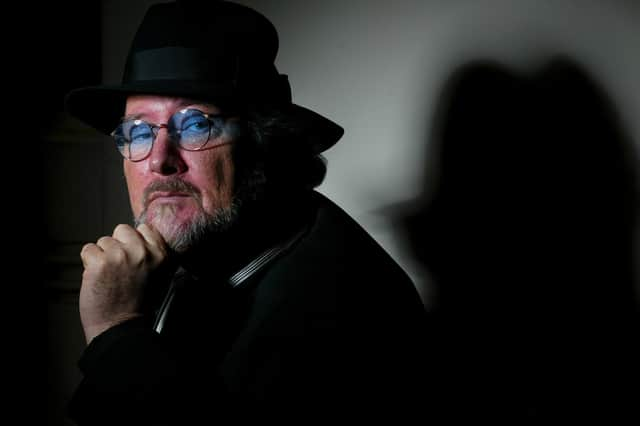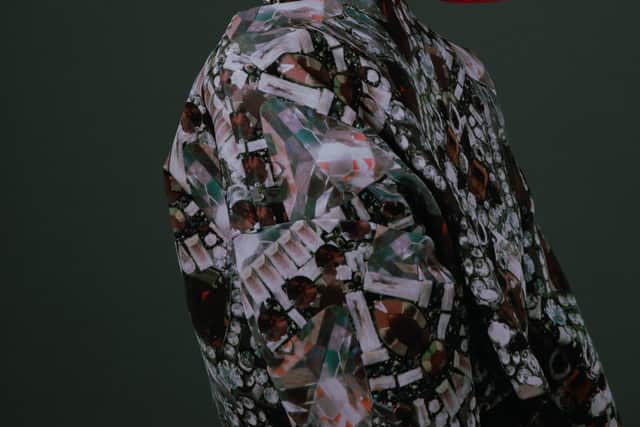Album reviews: Gerry Rafferty | Kanye West | LOTOS


Gerry Rafferty: Rest In Blue (Rhino) ****
Kanye West: Donda (GOOD Music/Def Jam) ***
LOTOS: Renaissance (Last of the Old School) ***


Ten years after his passing, Gerry Rafferty releases his eleventh solo album. Rest In Blue was in the works in Rafferty’s final years; his daughter Martha has sensitively curated its completion from demos dating as far back as 1970, which her father had unearthed and earmarked for his latest project.
She has corrected his tendency to over-ornament songs which need little window dressing by stripping away much of the production, particularly layers of synthesizers, for a more organic sound, and to foreground her father’s world-weary voice.
Advertisement
Hide AdAdvertisement
Hide AdAnd just like that, he’s back in the room, surrounded by the old gang, including his wingman Hugh Burns on guitar and vocalist Katie Kissoon, while friend and longtime collaborator John Byrne has supplied the simpatico artwork.
Rest In Blue is no dusty relic, rather it is a timeless treasure which confirms there was much more left in the tank, from symphonic pop to country gospel. Slow Down honours the slick pop rock production for which Rafferty was known. Still In Denial is a warm rhythm’n’blues intervention, a second person note to self on his failure to deal with his alcoholism. The languid, elegant blues rock of Full Moon contrasts with the pacier AOR environmental alert of Sign of the Times.


Better still are the love ballads. You Are All I Want is another of his trademark direct expressions of adoration, gently embellished with sensitive strings and a mellifluous guitar solo. I Still Love You is a southern soul declaration of devotion, tinged with regret, while Keeper of My Soul is the upbeat flipside.
Rafferty’s skills as an interpreter are showcased on a mindful cover of Wild Mountain Thyme. He delivers Ewan MacColl’s Dirty Old Town as a country blues lament and revisits his own Stuck In The Middle With You as a spirited rendition recorded in the Nineties with groovy handclaps and deft, playful lead guitar, topped off with his hearty, spontaneous laughter.
Countering the criticism that his last two records have been measly affairs, Kanye West’s new album lasts almost as long as the saga around its production. Donda has been premiered via online concert no less than three times, and its release delayed repeatedly as West holed up in an Atlanta stadium to continue tinkering with what has finally emerged as a 110-minute behemoth.
The sprawling work, named after his late mother, pivots away from his recent tantalising if piecemeal trad gospel direction, but the Almighty is still a presence throughout. West has created an epic 21st century devotional with eerie monastic chant backing on God Breathed, a nine-minute prayer for the local and global called Jesus Lord, an entreaty for redemption on New Again and the supplicatory No Child Left Behind delivered on a bed of droning church organ.
The assembled congregation includes Jay-Z on the electro rock-tinged Jail, a sampled Lauryn Hill on the funky, pulsing Believe What I Say, and the yearning tenor of The Weeknd on Hurricane, where gospel and hip-hop come together most seamlessly.
Advertisement
Hide AdAdvertisement
Hide AdAs if 23 new tracks were not quite enough, West produces alternative versions of four of them, including a take on Jesus Lord which pushes the 12-minute mark. It’s all too much – but better that than too little.
West could learn some economy from Edinburgh hip-hop collective LOTOS, who deliver a dense debut missive in under half an hour. Renaissance features the diverse accents of eponymous MC Last of the Old School, rappers Revaluation and Kope and R&B vocalist Oggie on low slung grime grooves, street testimony, menacing laments on short fuses and trigger-happy hands and athletic challenges to fellow rappers.
CLASSICAL
Ina Boyle: Songs (Delphian) ***
Kudos to Iain Burnside and singers Paula Murrihy (mezzo-soprano), Robin Tritschler (tenor) and Ben McAteer (baritone) for unearthing the songs of the largely unknown Irish composer Ina Boyle. Born in 1889 in County Wicklow, Boyle studied privately with several key figures, ultimately Vaughan Williams, and it’s perhaps his influence that most informs the 30-plus songs recorded here. Boyle’s texts vary from Bridges and Kipling to Walter de la Mare and Edith Sitwell, and where the music represents a consistency and proficiency of style – a plain, cosy modality, injected now and again with shards of testing originality – that consistency is what gives this album a flattish arc over its 80-minute duration. Better to dip into such collections as the Five Sacred Folksongs of Siciliy or three characterful de la Mare songs and savour their unpretentious syllabic charm in bitesize chunks. Unquestionably good performances make it all worthwhile. Ken Walton
FOLK
Heisk: Heisk (www.heisk.co.uk) ****
Heisk have been playing together for some time within Glasgow’s young musical ferment, but this is their debut album, capturing their bright, tight, all-instrumental sound, fronted by fiddlers Rosie Munro and Sally Simpson and accordionist Megan MacDonald, with electro-harpist Becca Skeoch, Catriona Hawksworth on keyboards and drummer Lauren MacDonald. Produced by the ever-versatile Anna Massie, this clutch of self-penned or otherwise contemporary material sees the sextet switch from crisp, drum-driven beats to trancey grooves and pulses. Grethy, for instance, brings in a fiddle reel over ominous keyboard tones and cymbal hiss, eventually working up a hypnotic spin. Disco is four-to-the-floor cheesy and there are occasions, such as the already brisk melody of Faces, when their nimble playing doesn’t really need drums. Elsewhere, Charlie’s set glides easefully over glistening keyboards before breaking into a beaty reel, fade and return, while they close with the hypnotic whirl of Andina. Jim Gilchrist
A message from the Editor:
Thank you for reading this article. We're more reliant on your support than ever as the shift in consumer habits brought about by coronavirus impacts our advertisers.
If you haven't already, please consider supporting our trusted, fact-checked journalism by taking out a digital subscription at https://www.scotsman.com/subscriptions